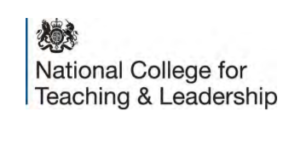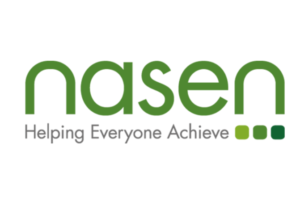You must be a qualified teacher to work as a SENCo.
To achieve qualified teacher status (QTS) in England and Wales you’ll need an undergraduate degree in any subject and a postgraduate teaching qualification (a PGCE). There are different postgraduate training routes available including school-led and university-led courses.
It’s also possible to do an undergraduate degree which will provide QTS, such as a BA or BSc in Education. This is a more common route into primary school teaching. Some universities offer programmes that qualify you to teach in secondary schools and include a subject specialism.
For more information on entry requirements and routes into teaching, see teacher training and education.
All Initial Teacher Training (ITT) must ensure the same outcomes for it be accredited: these can be found on the Department for Education’s website
The document makes clear the expectations of ITT and SEND are:
Consideration of SEND, Disadvantage and Mental Health
The ITT Core Content Framework has been designed in the knowledge that the quality of teaching is the most important factor in improving outcomes for pupils – particularly pupils from disadvantaged backgrounds and those with additional needs. As such, the ITT Core Content Framework is designed to help trainee teachers take their first steps towards becoming expert teachers of the future who can transform the lives all pupils.
Careful consideration has been given to the needs of trainee teachers in relation to supporting pupils with Special Educational Needs, encompassing those pupils identified within the four areas of need set out in the Special Educational Needs and Disability code of practice. As with the ECF, the ITT Core Content Framework is deliberately designed to emphasise the importance of high quality teaching, which is particularly important for disadvantaged pupils and those with additional needs. For this reason, the ITT Core Content Framework deliberately does not detail approaches specific to particular additional needs – to reflect the importance of quality first teaching – while also providing opportunity for providers to tailor their curricula to the needs of their trainees. Similarly, the ITT Core Content Framework has been reviewed with consideration with how to best prepare trainee teachers to support pupils with their mental health, including – but not limited to – by creating respectful cultures within their classrooms where pupils feel motivated and valued. Throughout, the ITT Core Content Framework highlights the importance of building strong, positive relationships with pupils – as well as their parents and carers – as a means of supporting all pupils to achieve.
Support for Behaviour Management Training
A key finding of the Carter Review of initial teacher training (2015) was the importance to trainees of high-quality training to improve
behaviour management. Whilst this review of the ITT Core Content Framework builds on and replaces the 2016 document, the Behaviour Management Report (2016) remains an important and useful tool for providers designing their ITT curricula. An easy-to use summary of this review – updated in line with the new ITT Core Content Framework – is provided to support providers in designing their curriculum.

Those who wish to become SENCo’s will need to complete a mandatory professional post-graduate qualification worth 60 credits towards a Masters qualification. There are learning outcomes for the SENCo Award are set by the National College for Teaching and Leadership and each accredited course provider (usually universities) determines how these are delivered.
For SENCOs new to the role it is mandatory to achieve the award within three years of appointment.
SENCos are not expected to be specialists in all specific needs but to have the skills and knowledge to ensure that they and others working with a child gain the knowledge needed. Nor are they expected to be solicitors versed in the detail of appeals processes – they are required to know the statutory and regulatory context for SEN and disability equality and the implications for practice in their school or work setting. Parent cares have ‘expert by experience’ knowledge and skills that, when combined with the expertise of teaching and learning professionals and the SENCo should ensure high quality outcomes for each child or young person.
 Whilst the majority of children and young people with special needs and, or disabilities (SEND) will have their needs met within mainstream schools and settings, some will need a more specialist approach and may need a special school or cabin place. Special schools often provide for a type of need e.g. Social and Emotional Mental Health (SEMH), Moderate Learning Needs and complex and developmental needs, visual or hearing impairment or Autism. Some mainstream schools have specialist units or ‘enhanced resource provision’ within the school, some are also known as ‘cabins’ – each will support particular types of needs. Occasionally, children undergoing assessments may by offered a short-term assessment place. Some children and young people need ‘alternative provision’, which are called just that or might be called a Pupil Referral Unit.
Whilst the majority of children and young people with special needs and, or disabilities (SEND) will have their needs met within mainstream schools and settings, some will need a more specialist approach and may need a special school or cabin place. Special schools often provide for a type of need e.g. Social and Emotional Mental Health (SEMH), Moderate Learning Needs and complex and developmental needs, visual or hearing impairment or Autism. Some mainstream schools have specialist units or ‘enhanced resource provision’ within the school, some are also known as ‘cabins’ – each will support particular types of needs. Occasionally, children undergoing assessments may by offered a short-term assessment place. Some children and young people need ‘alternative provision’, which are called just that or might be called a Pupil Referral Unit. The Local Authority Early Years team have helpfully provided an easy read guide to the support that they are able to offer.
The Local Authority Early Years team have helpfully provided an easy read guide to the support that they are able to offer.
 Choosing a school for any child can feel challenging but for families whose child has additional or special needs and/or disabilities it can feel overwhelming. The Contact a Family
Choosing a school for any child can feel challenging but for families whose child has additional or special needs and/or disabilities it can feel overwhelming. The Contact a Family The Admissions process is when parents and carers apply for school places for their children and covers ages 3-16 years. This application process is called the Admissions Process and is managed by the Local Authority. There is one process for all children, including those on SEND Support and a separate process for those children with Education Heath and Care Plans. Usually, the admissions process happens in the year before the child is due to move to the next stage of schooling – from pre-school to primary, from primary to secondary. There is a single national deadline for primary applications (15 January) and for secondary applications (31 October).
The Admissions process is when parents and carers apply for school places for their children and covers ages 3-16 years. This application process is called the Admissions Process and is managed by the Local Authority. There is one process for all children, including those on SEND Support and a separate process for those children with Education Heath and Care Plans. Usually, the admissions process happens in the year before the child is due to move to the next stage of schooling – from pre-school to primary, from primary to secondary. There is a single national deadline for primary applications (15 January) and for secondary applications (31 October). ‘Transitions’ is how we explain when children move from one phase of education to another – from pre-school into primary school, from primary school into secondary school. There will be other changes such as when a young person prepares to leave school, but these are covered under
‘Transitions’ is how we explain when children move from one phase of education to another – from pre-school into primary school, from primary school into secondary school. There will be other changes such as when a young person prepares to leave school, but these are covered under 
